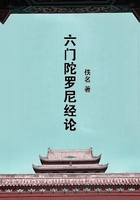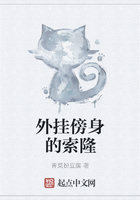Of Commercial Wealth By labour man drew his first wealth from the earth, but scarcely had he satisfied his primitive wants, when desire made him conceive other enjoyments, not to be obtained without the aid of his fellows. Exchanges began. They extended to whatever had any value, to whatever could produce any; they comprised mutual services and labour, no less than the fruit of labour; and gave room to the formation and increase of a new kind of wealth, which was no longer measured by the wants of him who produced it, but by the wants of all those with whom he might transact exchanges, - with whom he might carry on commerce; and hence we have named it commercial wealth.
The solitary man was used to labour for his own wants, and his consumption was the measure of his production; he fitted out a place to produce him provisions for a year, for two years perhaps; but afterwards he did not indefinitely augment it. It was enough to renew the process, so as to maintain himself in the same condition; and, if he had time to spare, he laboured at acquiring some new enjoyment, at satisfying some other fancy.
Society has never done any thing by commerce, except sharing among all its members what the isolated man would have prepared solely for himself. Each labours, in like manner, to provide for all, during a year, two years, or more; each labours, afterwards, to keep up this provision, according as consumption destroys a part of it; and since the division of labour and the improvement of arts allow more and more work to be done, each, perceiving that he has already provided for the reproduction of what has been consumed, studies to awaken new tastes and new fancies which he may satisfy.
But when a man laboured for himself alone, he never dreamt of those fancies, till he had provided for his wants; his time was his revenue; his time formed also his whole means of production.
There was no room to fear, that the one would not be exactly proportioned to the other; that he would ever work to satisfy an inclination that he did not feel, or which he valued less than a want. But when trade was introduced, and each no longer laboured for himself, but for an unknown person, the different proportions subsisting between the desire and what could satisfy it, between the labour and the revenue, between production and consumption, were no longer equally certain; they were independent of each other, and every workman was obliged to regulate his conduct by guessing on a subject, concerning which the most skilful had nothing but conjectural information.
The isolated man's knowledge of his own means and his own wants, required to be replaced by a knowledge of the market, for which the social man was labouring; of its demands and its extent.
The number of consumers, their tastes, the extent of their consumption, and their income, regulate the market for which every producer labours. Each of these four elements is variable, independently of the rest, and each of their variations accelerates or retards the sale. The number of consumers may decrease, not only by sickness or war, but also by obstacles which policy may place in the way of their communication, or by the avarice of new sellers. Their tastes may be changed by fashion: an extraordinary consumption of one kind of merchandize, brought about by some public calamity, may have reduced them to be frugal in all the rest; and finally, their income may diminish without a diminution of their number, and with the same wants, the same means of satisfying them may no longer exist. Such revolutions in the market are difficult to know with precision, difficult to calculate; and their obscurity is greater for each individual producer, because he but imperfectly knows the number and means of his rivals, the merchants, who are to sell in competition with him. But one single observation serves him, instead of all them: he compares his price with that of the buyer, and this comparison, according to the profit or loss which it offers him, is a warning to increase or diminish his production, for the following year.
The producer establishes his price according to what the merchandise has cost, including his profit, which ought to be proportional to what might be obtained in any other kind of industry. The price must be sufficient to repay the workmen's wages, the rent of the land, or the interest on the fixed capitals employed in production, the raw materials wrought by him, with all the expenses of transport, and all the advances of money. When all these reimbursements, calculated at the mean rate of the country, are themselves repaid by the last purchaser, the production may continue on the same footing. If the profits rise above the mean rate, the producer will extend his enterprizes; he will employ new hands and fresh capital, and, striving to benefit by this extraordinary profit, he will soon reduce it to the common level. If the buyer, on the other hand, pays a price too low for compensating all the producer's reimbursements, the latter will, of course, seek to reduce his production, but this change will not be so easy as the other. The workmen employed by him, rather than abandon what gains their bread, consent to work at a lower price; for less even than the necessaries of life.
Fixed capitals, moreover, cannot be put to another use; he will content himself with a smaller profit, and continue to work with them till they produce next to nothing. Lastly, the manufacturer himself must live by his industry, and never willingly abandons it: he is ever disposed to attribute the decline of his last year's trade to accidental causes; and the less he has gained, the less is he willing to retire from business. Thus production continues almost always longer than demand, unless the manufacturer has, of his own accord, renounced his business to attempt a new one.















